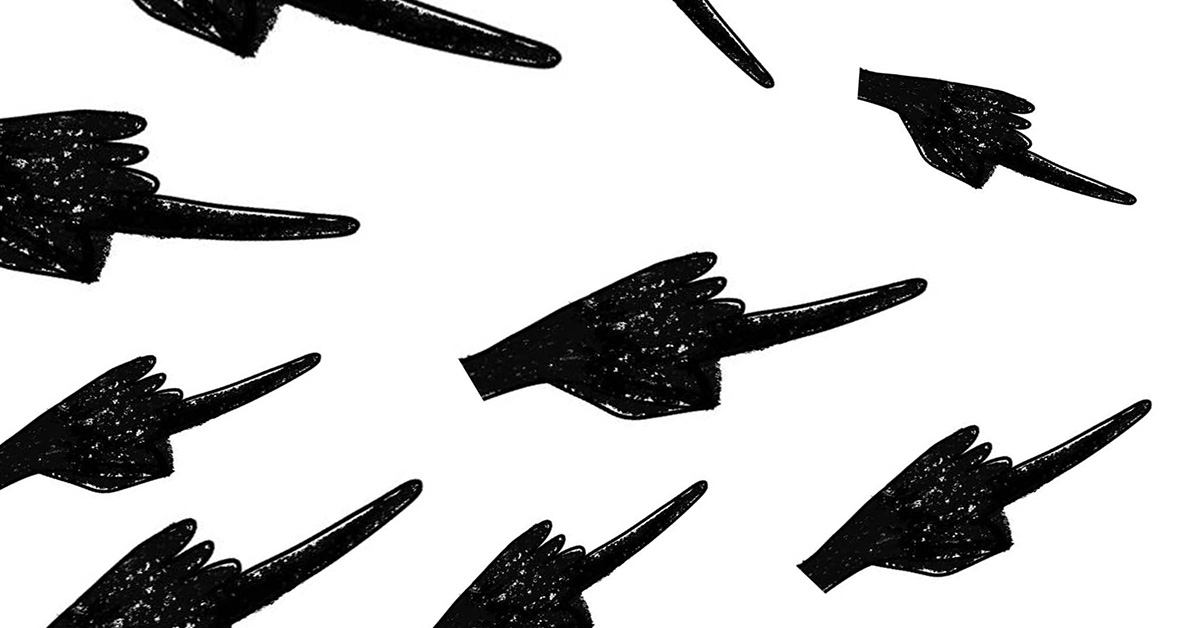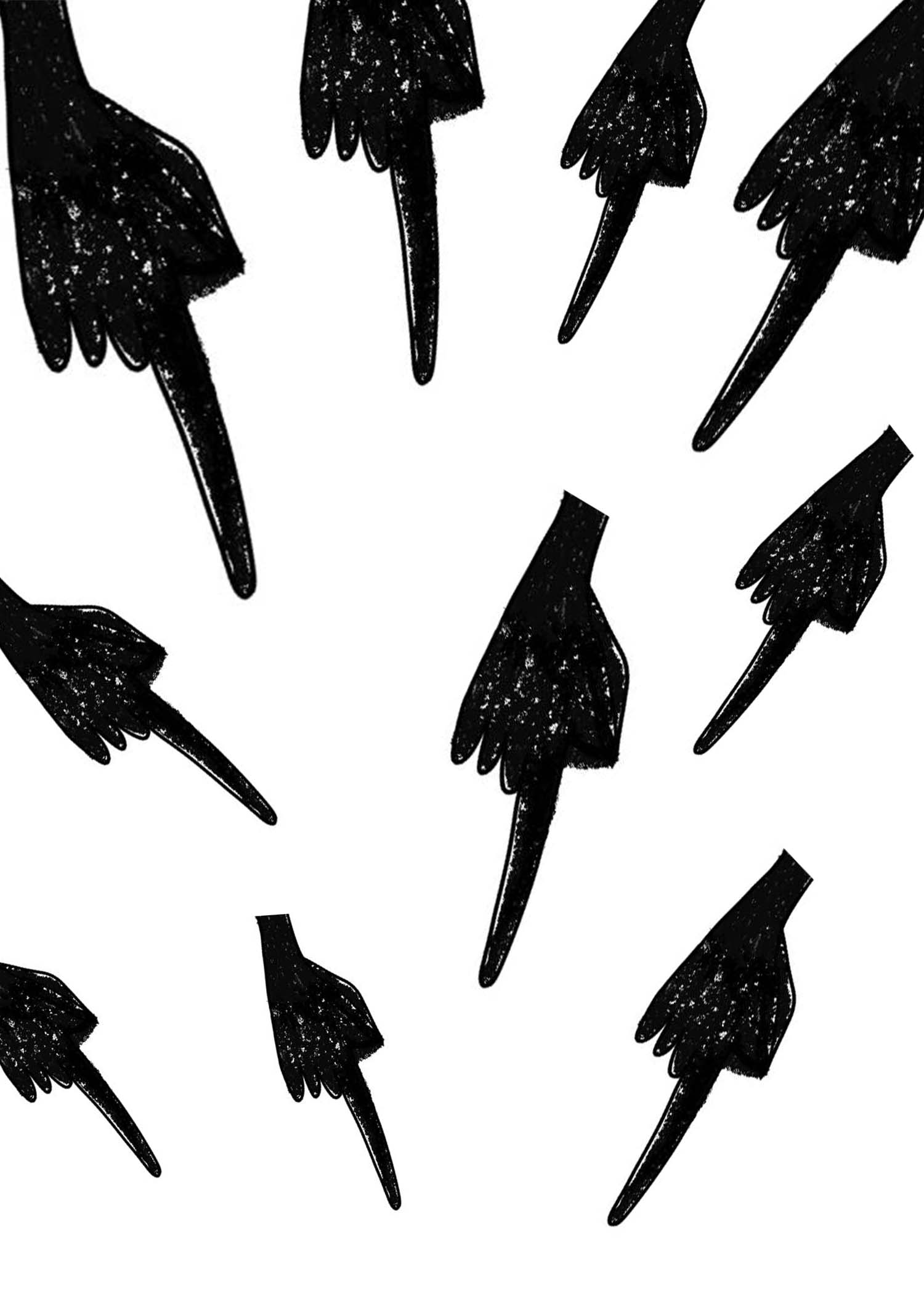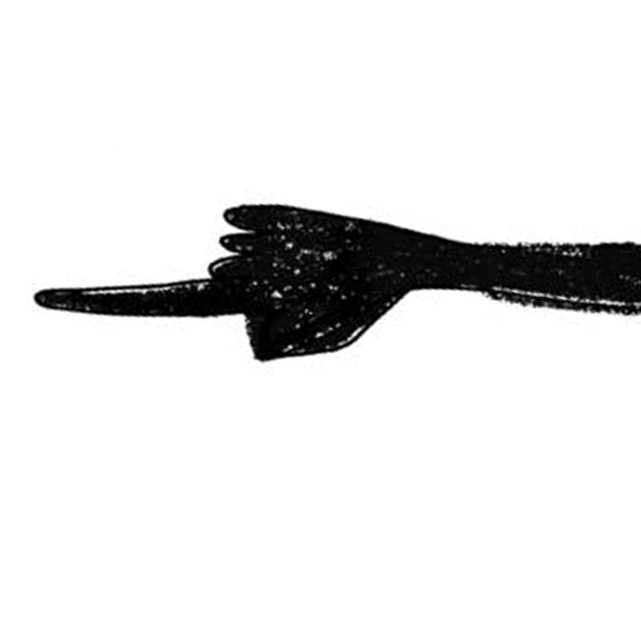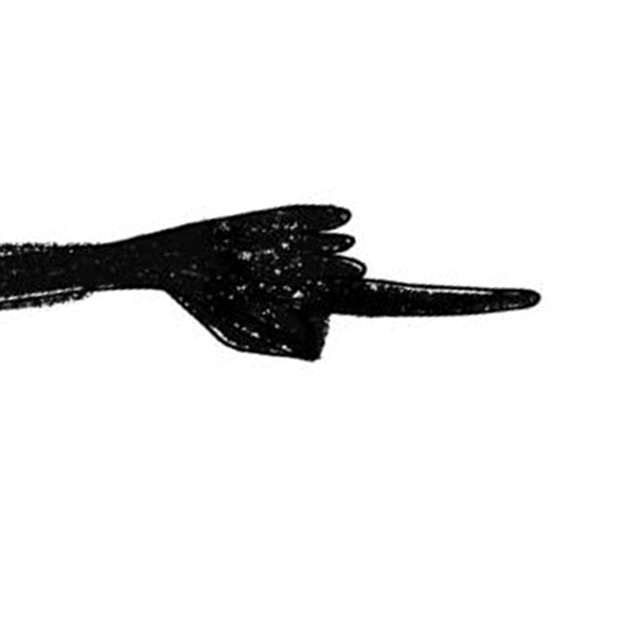

He Said, She…
Have New Zealand’s defamation laws silenced our #MeToo movement?
By Pete McKenzie
Illustrations by Imogen Greenfield
Steph Dyhrberg is the lawyer you hope you never have to hire. At her boutique employment law firm in Wellington, one of her specialties is representing survivors of sexual harassment. She interviews potential clients in her firm’s spartan conference room: no windows, a plain table and a forgettable painting on the wall. By now, she’s noticed a familiar process which people go through as they wrestle with whether to go public with their claim.
“They’ve told their story repeatedly and are finally standing in their truth space. They’ve got this confidence and they’re determined they’re going to do something about it. Often by then they’re suffering stress-related illnesses. They’ve got symptoms of anxiety. Everything is quite hard,” she explains.
What happens next also follows a pattern. “Either a human resources person for an organisation or a lawyer for a respondent threatens them with defamation proceedings. Or warns them, in the nicest possible way — particularly HR. And it takes all the wind out of their sails.
“It’s like watching when a snail is crawling along. It’s got its horns out and it’s on its little mission. And then you touch it, and the horns draw back in and it shrivels into its shell. It falls over and it lays there.”
Dyhrberg’s journey to her position as one of Aotearoa’s leading advocates for survivors of sexual harassment started 31 years ago, when she started a job at the prestigious law firm Russell McVeagh. Known as “The Factory” within the profession, she recalls it as a toxic environment where a “work hard, play hard” culture was invoked to cover chronic bullying and sexual misconduct. Dyhrberg lasted seven years. Deeply affected by her experience, she left Russell McVeagh and carved out an independent career in employment law.
Two decades later, she wasn’t surprised when Newsroom revealed in 2018 that a partner at Russell McVeagh had sexually harassed multiple interns at two Christmas parties. The man partly attributed his conduct to the firm’s culture (he has since left the firm, as have senior members of its HR team and at least one other partner implicated in separate incidents of sexual harassment).
Dyhrberg’s quiet fury at the revelations drove her to take on an even more intense workload: supporting survivors coming forward, advising journalists doing investigations into sexual harm and providing free advice to the public through the Law Society. Her advocacy made her one of the informal leaders of Aotearoa’s nascent #MeToo movement.
#MeToo had gained international prominence a few months earlier, in October 2017, after the New York Times and New Yorker published stories exposing repeated sexual abuse and rape by Hollywood mogul Harvey Weinstein. The Weinstein stories opened a floodgate. A year later, the New York Times found that at least 200 prominent men had lost their jobs after being exposed as perpetrators of sexual harassment through rigorous investigations by journalists — and those were just the cases that made headlines. Nearly half of the men who were replaced were succeeded by women. Dozens of states changed their employment laws. Major companies like Uber, Microsoft and Hyatt made significant changes to their internal procedures.
“We still have a long way to go,” says Dani Ayers, the chief executive of the “me too.” organisation (founded by activist Tarana Burke in 2006). “But we are excited to see changing workplace policy, reporting, greater accountability standards, and more courageous action being taken to address issues of safety.”
But in Aotearoa, #MeToo hasn’t had the same seismic effect. Dyhrberg says that while many organisations have implemented new policies around sexual harassment and bullying, “there’s still a lot of defensive, head-in-the-sand reactions. Sometimes it does feel like things are being very rapidly swept under the carpet.”
Since the Russell McVeagh revelations, Dyhrberg has watched with frustration as credible reports of harassment didn’t end in punishment for the perpetrator, or didn’t ever come to public attention at all. “We were asking: ‘Why is that? Why aren’t the names being published?’” She says a big part of the answer is our defamation laws and the culture of silence they help perpetuate.
In the United States, media reporting was pivotal to the juggernaut that the #MeToo movement became. The New York Times and New Yorker took months to uncover the Weinstein harassment; The New Yorker’s Ronan Farrow has since asserted that Weinstein successfully used a private Israeli intelligence service to pressure NBC News, where he had previously worked, not to publish the story. Even in the absence of such pressure, stories about sexual harassment typically involved dozens of interviews to establish patterns of abusive behaviour or corroborate allegations. These detailed investigations also increased public awareness of how sexual harassment works, such as the methods commonly used by harassers to silence complaints. “Because of the coverage and notoriety that the movement has received, survivors understood they were not alone and that they had power in numbers,” says Ayers.
In New Zealand, following the Russell McVeagh revelations, Stuff launched #metooNZ — a major editorial initiative which invited survivors to submit their stories and hold harassers accountable. By the end of 2019, it had received more than 400 disclosures.
The reporting by Stuff and others revealed individual or chronic sexual harm in multiple major institutions, including the Defence Force, universities like AUT, media organisations like TVNZ and political institutions like Parliament.
But unlike the #MeToo stories in the US, these stories often left the alleged harassers anonymous. For example, #metooNZ revealed in March 2019 that a TVNZ employee had been forced to resign immediately after exposing his penis to colleagues at a 2018 Christmas party. It also noted that two former staff members had come forward with allegations that they had been sexually harassed by senior managers at the company. Alison Mau, the editor of #metooNZ, chose not to name the alleged harassers.
Similarly, in March 2021 #metooNZ reported that “an unnamed radio employee” at media company MediaWorks had been accused of serious sexual harassment by four colleagues and that another employee had been accused of “rape, sexual assault, sexual coercion, and blackmail”. Mau wrote that “Stuff has opted not to name either man at this time” — an approach which they have maintained in their subsequent reporting. At least one senior MediaWorks employee has since left the organisation because of revelations about the organisation’s culture.
Stories that named an alleged perpetrator who had not already admitted their offence are the exception, says Dyhrberg. “You can list them on one hand, maybe.” And our defamation laws, she says, are a major reason for this.
The basic aim of Aotearoa’s defamation laws is to protect people’s reputations against untrue and harmful accusations. On the one hand, explains Dr Nicole Moreham, a law professor at Victoria University of Wellington, “if you make a false accusation of sexual harassment against someone, that can destroy their life and people need to be protected against that. But on the other hand, you’ve got to weigh the importance of true allegations coming to light and of social movements — like #MeToo — which make that more likely to happen. There’s a tension there, and the law needs to balance both interests.”
Dyhrberg agreed that public allegations can cause “very serious harm to people and their families and their health” — even for those who have been credibly accused. For the same reason that public exposure is a powerful tool of accountability, it can also have potentially devastating consequences. Dyhrberg pointed to the case of well-known radio personality Martin Devlin who attempted suicide after he was accused of harassment. Reporting on such topics must be careful, empathetic and extend the possibility of redemption, she says.
That said, she believes empathy can only go so far. “People who are causing unacceptable harm to other people should be worried about being found out. Shame is a powerful motivator,” says Dyhrberg. “And the people who should feel shame about sexual assault shouldn’t be the victims.”
“There’s still a lot of defensive, head-in-the-sand reactions. Sometimes it does feel like things are being very rapidly swept under the carpet.”

Other countries strike the balance between protecting reputations and exposing harm in different ways. In the United States, defamation laws are unusual due to the Constitution’s strong protections for free speech. A person suing for defamation must prove on the balance of probabilities that a public claim against them hurt their reputation and — crucially — was untrue.
If they are a public figure, like a politician or actor, the bar is even higher. They have to prove that the person making the harmful claim not only got it wrong, but knew they had it wrong or were recklessly indifferent to the truth. According to Steven Price, a defamation lawyer and lecturer at Victoria University, “Basically, they have to prove they didn’t give a stuff, and were reckless about not giving a stuff.”
In Aotearoa, by contrast, a person suing for defamation must only prove on the balance of probabilities that the published claim against them hurt their reputation. It is up to the person being sued for defamation to prove that their statements were true — a difficult task given that there are often not direct witnesses to incidents of sexual harassment. Other Commonwealth countries like Australia and England have similar rules.
That difference has major consequences for journalists. Soon after #MeToo gained steam, Australian journalists began naming alleged perpetrators of sexual harassment. “The stories they were exposing were big names,” notes Alison Mau. They included Oscar-winning actor Geoffrey Rush, actor and musician Craig McLachlan and television presenter Don Burke. “Two out of those three have ended in very high-profile defamation cases, both of which were won by the alleged perpetrator.” (The third will be heard in 2022.)
In the case of Rush, Sydney’s Daily Telegraph published a front-page “exclusive” in 2017 asserting that he had behaved inappropriately towards a younger actress while working on a production of King Lear. Rush subsequently sued for defamation and won. A federal judge ordered the Daily Telegraph to pay AU$850,000 in damages.
Mau says those publishing #MeToo stories in Aotearoa face a similar risk. Each of her stories are rigorously reviewed by a specialist defamation lawyer (until recently, Auckland-based Robert Stewart). She pointedly notes that Stewart, “unlike some media lawyers, [was always] working very hard to get stories across the line”.
Almost always, however, the legal risk means that Stuff has had to remove at least some of the names of those involved. “If you look back at the last few major publications since the middle of [2020], we’ve named four or five high-profile people in their fields. That takes a lot of work and a lot of substantiation through other methods,” says Mau. The small and close-knit nature of New Zealand makes that work even more difficult. People are often reluctant to publicly verify claims or speak out for fear that friends and colleagues will ostracise them, or their employment prospects will suffer. James Hollings, an associate professor of journalism at Massey University, characterises Aotearoa’s “draconian” defamation laws as just one part of a “very repressive, silencing culture”.
“If I was working on this stuff in the United States,” says Mau, “I think I’d probably get more stories across the line.”

“People who are causing unacceptable harm to other people should be worried about being found out. Shame is a powerful motivator.”
Most #MeToo defamation cases are a contest between the alleged perpetrator and the media organisation which exposed their behaviour. That’s because media organisations tend to have deeper pockets than individual survivors, and because the optics of an alleged harasser suing their victim are poor. But that doesn’t make survivors immune.
If a survivor goes to human resources or a lawyer, a common response is that they have to be careful about what they say or they’ll be sued for defamation. “Whether intended or not, it has a silencing, dampening effect,” says Dyhrberg. “It’s the clincher of the terror they have of public exposure, of ridicule, of being piled on in social media, of never getting another job in this town. And then you add the possibility that some person may sue them.” In other instances, an accuser may get a cease and desist letter “saying you are uttering untrue or defamatory comments about my client, and you need to stop it immediately or we’ll sue you for a lot of money”.
“They’re starting so far on the back foot, the playing field is so tilted against them, they often have nobody in their corner,” Dyhrberg adds. “And then to be threatened with the might of the legal system as well? They turn from the survivor of misconduct into the bad guy.” When asked to describe the reaction these threats typically inspire, Mau answers with one word. “Terror.”
Since the intricacies of defamation law aren’t well known, Mau says, “very few people see a defamation threat and think, ‘Yeah, I’ll see this through.’ Instead they think, ‘Well I gave it a go and tried to warn people, but it hasn’t worked out.’ And they shut up.”
Ironically, if the harassment claims haven’t already been made public, these threats are almost always empty. It is difficult to gain name suppression for defamation lawsuits. Going to court would mean announcing to the world that someone is alleging that you have sexually harassed them. And even if you can get name suppression, Aotearoa is so small that word is likely to get out. As Dyhrberg notes, “It’s kind of weird that it has such a silencing, crushing effect when the reality of it isn’t good for the [alleged harasser] at all.”
If the threat is largely hollow, why does it still hold so much power? It’s partly because our defamation laws make even the tiny possibility of going to court extremely threatening. Even if the lawsuit has no merit, the stress and cost of responding to it still provide a strong incentive to settle or back down. “The other side can use the law of defamation as a club to bully people,” says Price. According to Hollings, that effectively makes defamation laws “a law for the rich. Anyone with deep pockets can threaten — and a threat is often more than enough.”
Moreham points to former Conservative Party politician Colin Craig’s ultimately unsuccessful defamation cases, which entangled his former press secretary Rachel MacGregor for two years over claims he sexually harassed her in the lead-up to the 2014 election (three courts agreed with her). “If you want to publish something about someone like that, then aren’t you going to think twice?”
As a result of all this, Mau makes it a priority to explain defamation law to every survivor whose story she takes on. “I try to demystify it, as much as I can, early on. And then they can think about it with a clear head and make an adult decision about whether to go ahead.”
In 2018, the Court of Appeal recognised a new defence to defamation claims: “responsible communication in the public interest”. According to Moreham, the legal academic at Victoria University, if a story genuinely contributes to an important public conversation and the journalist has taken enough care in putting together the story, the defence would likely protect journalists even if they couldn’t prove their story was true to a legal standard. “If you can show it was in the public interest and responsible, you will have a defence.”
Despite this expanded protection, journalists and their lawyers don’t seem to have shifted their approach yet. Many of the stories investigated by Stuff’s #metooNZ project and other media outlets have been published under the new legal regime, yet they often still leave the alleged perpetrators anonymous and thus more likely to escape accountability.
“Power structures and the powerful will always protect themselves and each other,” observes Dyhrberg. “It’s not a level playing field. You can’t tell me that a just and fair society involves silencing people who are powerless and have been subject to disrespectful behaviour. What kind of justice is that?”
Pete McKenzie is a freelance journalist based in Wellington, where he focuses on politics, foreign affairs and legal issues.

